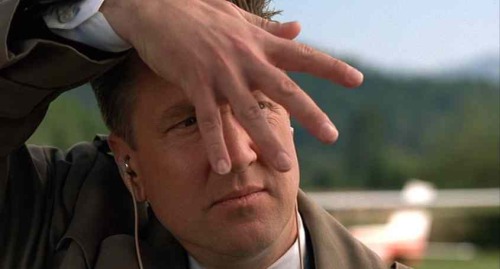Reflections on Antwerp, By Night in Chile and the condensed
matter of Roberto Bolaño.
Poetry and I have often had a rather strange relationship.
Sketches from dreams once had long ago, by some who had only a vague notion
they were dream. Often I have attempted to break beyond my perceived idea of
poetic style; the fragmented moment, hyper-real as opposed to surreal.
Tradition always got the better of me however, moving my words into rivets of
sunken earth, flowing into grander rivers. “The poem must be broken into
verse”… “The rhyme will never truly disappear”… “Where in the hell is this poem
going anyway?” Some of my least embarrassing works tend to be written in the
haste of deadline, perhaps stemming from the failure to ponder for too long.
After all, it was Burroughs who said the Word is a virus. It seems remarkable
then, when coming across someone who seems to have an uncanny ability (and I
mean that in the literary analysis sense) to break bounds never before known to
exist.
This is where Mr. Bolaño enters the shot. Gleam of the stage
lights reflecting off his glasses. It would seem as though there has been a
film on, or that we are in fact on film. He says a few quick words, smokes a
cigarette, and leaves. Not much happens, yet it’s all laid down in front, and
we can all see it. It’s staring up at us, waiting for acknowledgement. If the
metaphor is lost on you, then I urge you to look upon Antwerp.
A collection of 56 fragments. Chapters of a larger story
told through single moments. One could call it a prose poem, but there seems to
be more here. A narrative flows on beneath the surface of surreal and often
times violent imagery. For any who have read his later work, this “story” acts
like the seed from which his world was born. It reminds me of the old Sun Ra
quote “...At first there was nothing... then nothing turned itself inside-out
and became something.” In this case one could look at the converse. There was
once something, but it turned itself inside-out and became nothing... then
there was nothing.” Bolaño
takes the world we live in and cuts it up, filters through it, and throws out
all the big moments, leaving only the spaces in-between. The world is told
through glances, thoughts, sudden recollections, dreams, and silent stillness.
There is definitely something going on, though what it is and what it means seems
forever beyond our reach. The final question is on the other side of an ever
expanding sea, and you have but a row-boat and an oar. Perhaps we were meant to
wake up before we actually got in the boat. Perhaps not.
By Night in Chile
follows a similar yet different path. While still fragmented, we hear the dying
monologue of an Opus Dei priest. The words of a dying man, which always seem to
carry with it a foreboding. There is a pattern in Bolaño’s work of objective memory. The story of someone
told through the omniscient flashback of… whoever is actually writing this
story. Isn't the world as we know it just a collection of memories and stories
anyway? Do we ever know what’s actually going on? Maybe Bolaño is trying to
show us that through the many layers of memory we can see a bigger picture
forming, ultimately leading to his final work 2666, where the five stories tell the stories of others, all
somehow connected to the deserts of Mexico, and the ghost of death as it moves
through the city of Santa Teresa. But I thought I was talking about By Night in Chile…
That’s right, it’s all connected. Like 2666, Bolaño’s work was written in
Spanish. As a native English speaker I will never be able to fully understand
what Bolaño actually means in his writing. Instead I rely upon the job of a
translator. Much like how the story itself is told through the eyes of someone
else. How can one tell what the words truly mean and what gets lost in translation?
Here we are learning of the life of a priest, but all we know about the people
he encounters is what he remembers. The often noted unreliable narrator
problem.
Do I distrust the priest? No, I distrust what is not his to
control: disintegration of memory. Things die. They fall apart and becomes
ghosts of something, permanently haunting the unconscious past. In a time where
biographies seem to be best-sellers and voyeuristic television seems to make the
best ratings, we enter a world that relies more and more on fabricated memory.
Maybe this is why Bolaño’s writing seems to eerily familiar, yet surreal at the
same time. Maybe it’s time to go to bed and stop worrying, because after all,
when we dream, we usually can’t tell.



